When you receive a new credit card, you'll also learn how much money the issuer is going to allow you use. This is known as your credit limit. However, borrowing up to your credit limit generally isn't advised.
Why is this the case? Shouldn't it be fine to use your full credit limit?
 When you borrow the full amount of your credit limit or more, it's known as maxing out your credit card. This isn't a good idea for a number of reasons, including the fact that it can negatively impact your credit score, increase your debt load, reduce your financial flexibility, and more.
When you borrow the full amount of your credit limit or more, it's known as maxing out your credit card. This isn't a good idea for a number of reasons, including the fact that it can negatively impact your credit score, increase your debt load, reduce your financial flexibility, and more.Financial experts typically advise that you use no more than 30% of the credit extended to you. This can help you be a more attractive borrower to lenders, ensure that you have access to funds in the case of an emergency, and help you keep your debt load low.
When you borrow the full amount of your available credit (or even exceed it,) it's known as "maxing out" your credit card.
When you max out your credit card, it means that you won't be able to make any further purchases with the card because you don't have any more available credit. That is unless you make some payments to reduce the account balance.
There are several reasons that you don't want to max out your cards (aka borrow up to your credit limit,) including the fact that it can:
Let's take a closer look at each of these to help you understand the consequences of borrowing up to your credit limit.
When you have a credit card, your credit limit is the amount of revolving credit you have access to at any given time. As you make purchases, your available credit will go down to ensure that you don't spend more than your credit limit.

The ratio displaying the relationship between your card balance and your credit limit is known as your credit utilization ratio. This is one of the significant factors that is taken into account when calculating your credit score.
Your credit utilization ratio is one of the major factors that impacts your credit score. The higher your balances are in relation to your credit limit, the higher your credit utilization ratio will be.
For example, if you have a $10,000 credit limit and a $2,000 balance, it means that your credit utilization ratio for that card is 20%. However, if you have an 8,000 balance on the same card, your credit utilization ratio is 80%.
When you spend up to your credit limit, it means that you're increasing your total debt burden. Depending on your financial situation, the card limit, and many other factors, this might not necessarily be a problem for you.
Carrying debt long-term can have a lot of negative effects on a person-- both financially and personally.

Here are some of the long-term consequences of carrying debt over an extended period of time:
If you're planning on applying for a mortgage anytime soon, it's a good idea to keep your credit utilization ratio low. The same is true for any other type of loan or line of credit.
On top of raising your credit utilization ratio, maxing out your cards can give you a less favorable debt-to-income ratio. When lenders are deciding whether or not to extend a loan to you, they want to know that there is a high likelihood that you will pay back what you owe on schedule.
Beyond that, if borrowing up to your credit limit leaves you with dings in your credit score and marks on your credit report due to missed payments, this is going to have a negative impact on your approval chances.
Credit cards often have high-interest rates. The average credit card rate as of July 2023 is 20.09% for existing accounts and 22.39% for new offers. Since 2010, the average interest rate for new offers has gone up by almost two percent.
The interest rate attached to your account will depend on a number of factors. The better your credit score was when you applied for the card, the lower the interest rate you can usually achieve.
Credit cards have higher interest rates than other forms of debt for a number of reasons, including the fact that this type of debt is unsecured (aka not backed up by collateral in the same way a home loan or auto loan is.)
If you max out your credit card, you're reducing your ability to cover unexpected expenses. For example, if you have a surprise medical emergency, car repair, or high utility bill, you won't have available credit waiting to help you take cover of the bill.
It's good to have some wiggle room when it comes to your finances. You never know when you'll need to replace your washing machine or have to get an electrical repair done, for instance.
Keeping your balance low can help you have peace of mind, too, as you know that you will be able to pay for unexpected costs if they crop up.
If you borrow up to your credit limit and aren't able to keep up with the payments, you could face additional fees and penalties.
If you can't afford to pay your bills and miss payments, this can lead to late fees, high penalty APRs, and potentially even having your account sent to collections if you don't pay up.
The general rule of thumb is that you want to keep your credit utilization ratio under 30%.
Keeping your credit utilization low is recommended for a number of reasons, including:
You might assume that paying off your balance in full every month should mean that how much you spend should have no impact on your credit score.
For this reason, it's important to really minimize credit card usage when you're planning on applying for a mortgage or otherwise trying to borrow money. Similarly, be careful not to rack up too high of a balance if your credit report will be pulled for an apartment application, job application, or for any other reason.
Sometimes, a credit card issuer will allow you to actually spend more than your credit limit. In some cases, you will specifically need to opt in for this feature. Other times they might give you a little wiggle room.
In some instances, going over your limit can mean that you face a penalty interest rate and an additional fee. Whether or not this is true in your situation has to do with the fine print of your card agreement.
You'll probably also see your credit score drop if you go over the limit, and this is reported to the credit reporting agencies. It's generally considered negative to exceed your credit limit, regardless of the specific amount or percentage that you went over the line.
Before I sign off, let's take a look at some commonly asked questions about credit limits and credit card usage best practices.
There are a number of advantages to having a higher credit limit. For example, it can:
On the other hand, having a high credit limit isn't always all sunshine and roses. There are some potential downsides, some of which can be catastrophic.
Having a higher credit limit can:
If you're thinking about applying for a new credit card or requesting a credit increase, it's important to think carefully about your income and expenses. You never want to borrow more than you can afford to pay back in a reasonable amount of time.
Whether or not you should request a credit limit increase will depend on a bunch of personal factors.
The best time to ask for an increase is when:
A credit card issuer doesn't have to increase your credit limit. They might also only grant you an increase that is a percentage of what you requested.
Are you requesting a credit limit increase because you're already deep in debt? If so, you'll want to slow down and decide if this will really help you solve your problem. If your debt is the result of a spending problem or poor money management, you could just end up finding yourself with a higher debt load in a short amount of time.
Requesting a lower credit limit usually isn't a good idea when it comes to your credit.
This is because it will likely increase your credit utilization ratio. For example, if you have a $5,000 balance on a $15,000 limit card, your credit utilization ratio is 30%. However, if the balance is lowered to $10,000, this means that your credit utilization is 50%.
That being said, keeping your credit score perfect isn't always the most important thing. Maybe you already have a mortgage and a car loan, and you're not planning on borrowing money anytime soon. If you're not worried about having a pristine credit score but more interested in reducing your access to available funds, you certainly could request a lower credit limit.
Some of the reasons you might choose to request a lower limit include:
You'll want to think about the pros and cons of requesting a reduction in your credit limit before making the call. Depending on whether you need your credit score to be in great shape in the near future, it may or may not be a good idea for you.
Credit cards can be a high-risk, high-reward type of thing. When used correctly, they can help you build a healthy credit profile. Used irresponsibly, though, they can send you into spiraling debt.
Here are a few things to keep in mind when you're learning the best ways to use credit cards:
It's best not to borrow up to your credit limit. When you max out your card, it can mean you're:
It can be tempting to spend the money extended to you. The truth is, though, the last thing you want is to enter a cycle of unmanageable debt.
On top of that, it's important to recognize that a high balance can still impact your score even if you pay your balance in full every month. This is because it can be hard to know precisely when the credit card company will report to the credit bureaus.
Are you working to learn more about responsible credit use and improving your credit? If so, you're definitely in the right place! Here at Credit Building Tips, it's our mission to help people improve their financial literacy and gain access to more financial opportunities.
Looking for more resources? Make sure to check out our Credit Building Tips blog!
In 2022, 77% of American adults had at least one credit card, with the average number of cards per consumer coming in at 3.84. In the last three months of that same year, Americans collectively carried $986 billion in credit card balances. Considering the stress and strain of having credit card debt, you might wonder, "why do people use credit to pay for things instead of simply using cash?"
The truth is, there’s a long list of reasons why people choose to use credit cards for all kinds of purchases.
 In some cases, an individual might choose to use credit cards for reasons that aren’t indicative of a debt problem, such as the additional security, convenience, and access to rewards and perks. Other people, though, might use credit because they have entered an unmanageable debt cycle.
In some cases, an individual might choose to use credit cards for reasons that aren’t indicative of a debt problem, such as the additional security, convenience, and access to rewards and perks. Other people, though, might use credit because they have entered an unmanageable debt cycle.Let's take a close look at why credit cards can be beneficial to your financial health. At the same time, we’ll examine the risks that they can pose when consumers aren’t careful to use them responsibly.
There are some pretty compelling reasons to use credit instead of cash, at least in some situations. Here are some of the most common justifications for making purchases using credit cards rather than cash, debit cards, or checks.
The most common form of identity theft is credit card fraud. While this might sound like a reason not to use a credit card, the truth is that the major credit card networks offer strong protection against fraud.
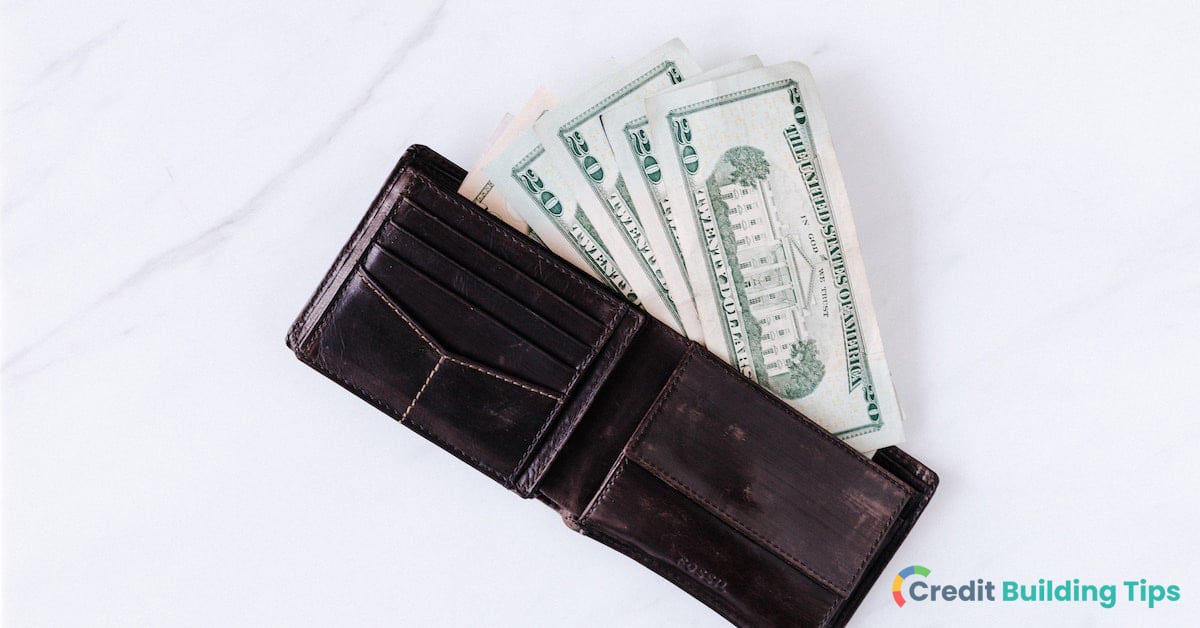
Credit cards, in general, offer better fraud protection than debit cards. This means that you'll be less likely to be responsible for transactions made by fraudsters with a credit card than a debit card. In terms of cash, cash that's stolen from you is, most likely, lost and gone forever.
Sometimes it makes sense to make big purchases with a credit card. This can be particularly useful if the card you’re using has a low interest rate or an introductory 0% interest rate.
Beyond that, though, credit cards can help protect major purchases. The reason for this is that many issuers will offer extended warranties and purchase protection.
When you use cash, of course, there’s no additional purchase protection or warranty beyond what is offered by the manufacturer or retailer. For this reason, it can make sense to put certain purchases on a card to help provide further protection.
It’s possible to use a credit card to pay for things you don’t have the money for right now while still avoiding paying interest, even without promotional 0% APR cards. The reason for this is that there is a grace period, which is the period of time between when you made the purchase and the due date of the bill.
If you pay off your card in full by your due date every month, you can avoid interest charges entirely. This means that, depending on when during your billing cycle you make a purchase, you can defer your payment for up to 30 days without racking up any interest.
Even if you have the money in your bank account to pay for the purchase you’re making, some people might use credit cards instead of cash in part because of the concept of the time value of money (TVM).
This notion assumes that having a dollar right now is more valuable than having a dollar down the road because of factors like interest rates and inflation. While deferring payments by only thirty days might not sound like that much, it can free up your cash for other purchases and investments in the present.
One of the primary reasons that people will use credit in order to pay for things rather than cash is that it’s often more convenient.
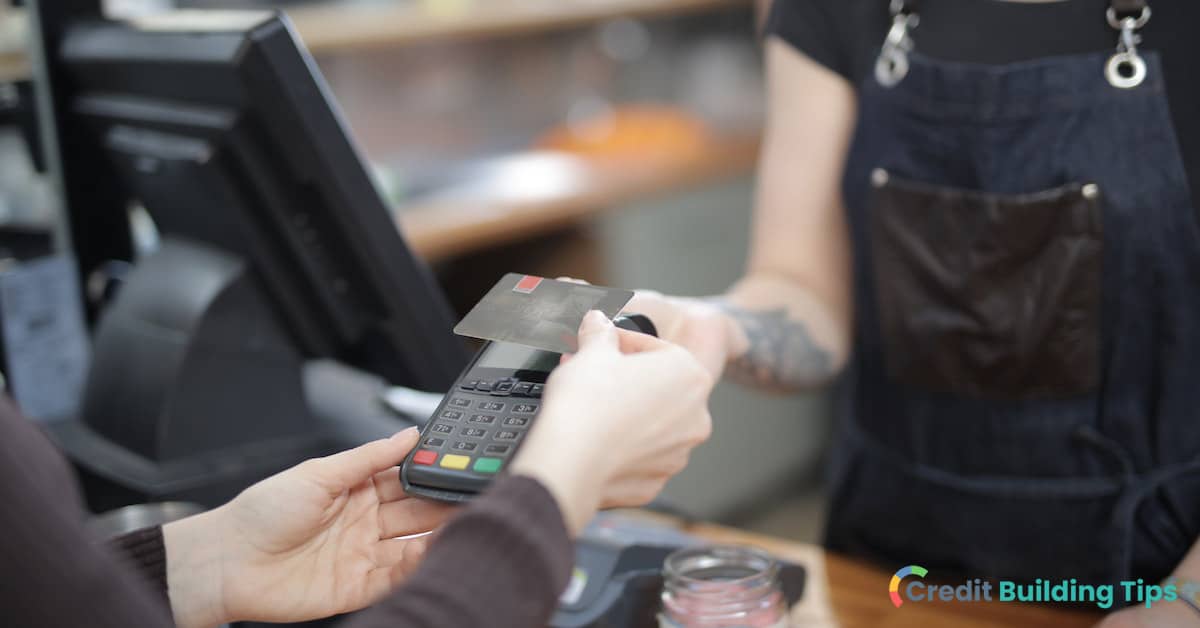
If you only use cash, it means that you have to carry enough with you at all times to make sure you can purchase what you need. When you have a credit card, you know that you’ll never be caught without spending power so long as there’s available credit on your account.
Another reason someone might use credit to pay for things instead of cash is that the card can give them access to more money than they actually have at the moment. This isn’t necessarily always a bad thing– for example, you might choose to purchase a dishwasher for your home using a low-interest rate or 0% APR card with a plan to pay it off over the course of the next few months. If you have a clear, attainable, realistic strategy for paying off your credit card balance, it isn’t the end of the world to use credit cards to purchase items you don’t have the cash for.
For example, the average American has more than $22,000 available to them across all of their credit cards. If you have a $20k credit limit and you start using your card without giving any thought to paying it off, you’re going to find yourself in a rough spot if you’re not pulling in a pretty healthy monthly income.
Another common reason that some individuals prefer using credit cards rather than cash is for safety reasons. For example, if they were robbed or lost their wallet, there’s a high likelihood they’ll never recover the cash they had on hand.
Some people also reasonably feel vulnerable when their wallet is brimming with cash. Credit cards, on the other hand, are small and discrete.
If they lose track of their credit card, though, they won’t be (in most cases) responsible for purchases made by unauthorized parties. Having someone make fraudulent transactions using your account can definitely be a big headache and take some time to clean up, but you typically won’t be liable for the payments made on your account fraudulently.
Let’s face it– it’s pretty hard to keep tabs on your budget. Living in the modern world means making lots of little (and not so little) purchases every month, and keeping track of all of your spending can feel like having a second job.
When you use a credit card rather than cash, though, you have a record of all of the purchases that you’ve made with that account. You can usually see your transactions nearly instantaneously, and many credit card issuers will even categorize your purchases based on the type of company.
Many of the biggest credit card companies will also let you create reports that break down where your money has been going each month. If you use one of the popular budgeting apps like You Need a Budget or Mint, you can easily import your credit card data into the app to help track your spending.
Some credit cards will run promotional offers where you can make purchases or balance transfers with low or no interest rates for a period of time. When used responsibly, this can be a great way to pay for larger purchases over time without having to pay much in the way of interest, if any.
Though not all credit cards offer rewards programs, many of them do. Depending on how much money you spend on your card, it’s possible to earn hundreds or even thousands of dollars back every year. There are lots of different programs out there geared towards different types of consumers, including:
It’s important to understand, though, that credit card rewards are only really worth it if you aren’t carrying a balance on your account every month. If you’re paying steep interest rates, the benefits of these credit card rewards can easily get overshadowed.
First of all, it’s important to note that you can have good credit without having a credit card. Other tools you can use to establish and maintain a healthy credit score include:
That being said, the single best way to increase your scores is through the responsible use of a credit card. Improving your credit can legitimately change your life, as it can impact your ability to get an apartment, a loan, a line of credit, or even a job.
Remember, it’s important to make sure that you are always paying your bills on time and keeping your balances low when you have a credit card. Otherwise, it can end up doing more harm than good to your credit.
For some types of transactions, using a credit card might not be advantageous.
Whenever you use your credit card, the card issuers charge a merchant fee. The merchant (aka the business you’re making a purchase from) is expected to pay this fee in order to cover the cost of processing the payment.
In some instances, businesses will charge a surcharge to the customer to pass the cost onto the consumer. For example, you’ve probably encountered a gas station or convenience store with a sign on their card reader that said something along the lines of “a 3% surcharge will be added to purchases under $5.”
Businesses will also sometimes charge a convenience fee, which is a fee that is applied when a customer uses a non-customary form of payment. For example, you might be able to pay a bill for no additional fee over the phone, but using an online platform to pay will cost an additional few dollars.
The following expenses often come with a transaction fee if you’re using a credit card:
If you’re planning on applying for a loan or line of credit, you’ll want to be careful racking up too high of a balance on your credit cards.
For example, if you’re trying to buy a house, mortgage underwriters will usually be very wary of changes in your creditworthiness during the time between your initial application and the closing. Your credit score could drop if your credit card utilization goes up, which could impact your ability to qualify for a loan.
One of the dangers of credit cards is that they can potentially give you access to money that you can’t actually afford to pay back.
If you know that you can’t afford a specific purchase, you shouldn’t use a credit card just because you have available credit. Debt can get out of control faster than you might imagine when you don’t have the cash flow to pay your balance every month.
For some large purchases and big bills, there can be room to negotiate and come up with a payment plan or other arrangement.
For example, if you’re facing significant medical bills it could be advantageous for you to set up a payment plan rather than get hit with your card’s interest rate. In some instances, you can even get the balance reduced depending on the circumstances.
Though there are benefits to using credit cards, there are also some serious risks.
If you aren’t careful, using credit cards can lead to unmanageable debt accumulation. There are a number of ways this can happen:
Though carrying cash with you puts you at risk of losing your cash or having it stolen, no thief will be able to steal your identity by getting their hands on your stack of Benjamins.
Using credit cards, however, does carry some risk of identity theft. The information from your credit card online or IRL leaves you vulnerable to identity theft and credit card fraud.
There are usually high-interest rates associated with credit cards. Because it’s an unsecured debt, the rates are a lot higher than when you take out a secured loan like a home loan or an auto loan.
We’ve already mentioned this a few times, but it bears repeating– if you don’t pay off your balance in full every month, the interest can really start to stack up. When you’re only making minimum payments, it can take an outrageous amount of time to pay back what you owe. In the meantime, you’ve handed over a lot more money to the credit card issuer than you originally borrowed.
For example, let’s say that your credit card has a 22% APR and the balance is $4,000. You’re only making minimum payments, which are 2% of the balance ($80). With these numbers, it would take you decades to pay off this $4,000 balance, and you would end up spending potentially as much as $37k in interest.
Some credit cards have annual fees, cash advance fees, and/or balance transfer fees. It’s always important to look at the fine print before taking out a credit card, transferring a balance to a card, or taking out a cash advance.
Using a credit card responsibly is essential to ensure you don’t accumulate debt or harm your credit. Some people struggle to keep credit cards with them, as the immediate access to funds makes them more likely to make impulsive purchases that they wouldn’t otherwise make.
For some people, using actual cash helps them recognize that they’re spending their hard-earned money. When they use credit cards, the sense that the money is going to eventually come out of their pocket is more abstract. If you’re one of these people, minimizing your credit card use might be a good idea.
Though this is somewhat related to impulse purchasing, it’s worth also noting that credit cards can tempt people to rack up a balance they really can’t afford to pay. They might justify it through an unreasonable assumption that they will have access to more money next month, or they might not have a realistic sense of their income and expenses.
Some people might choose to use cash whenever possible due to privacy concerns associated with using credit cards. Some of these concerns include:
Though responsibly using credit cards can help you improve your credit, irresponsible use of credit can wreak havoc on your credit score.
Not only can a lower credit score make it more difficult to borrow money in the future, but the negative marks on your credit file can be red flags to future lenders.
To wrap things up, there are a lot of different reasons why some people might choose to use credit rather than cash to pay for purchases. Some of these reasons are indicative of irresponsible borrowing, for example, being stuck in a debt cycle. On the other hand, there are lots of financially responsible reasons to use credit, including increased safety and security, additional perks and rewards, and the ability to improve one's credit score.
Having a credit card and paying off the balance in full every month can help you create a strong credit profile. On the other hand, racking up credit card debt, missed payments, and collection accounts can destroy your credit.
Whether you’re on a mission to build credit from the ground up or improve your credit after a few bad years, you’re in the right place. Make sure you check out our Credit Building Tips blog for more useful resources to help you in your journey to financial health.
When someone else uses your physical credit card or your account information to make purchases or withdraw cash without your permission, it means you're the victim of credit card theft. Though you might think this is the type of thing that happens to other people and not you, credit card fraud is actually one of the most common types of identity theft.
Whether someone got your card information through a skimmer, a phishing scam, malware, or other means, or they physically stole your card, you might be wondering whether the police will be of any help. When the theft is a smaller amount, such as under $500, you might wonder if it's worth filing a report at all.
 The answer is: it depends. It is a good idea to file a police report when you are the victim of credit card fraud, no matter the amount. Whether police will investigate credit card theft under $500 will depend on the specifics of the crime and your location.
The answer is: it depends. It is a good idea to file a police report when you are the victim of credit card fraud, no matter the amount. Whether police will investigate credit card theft under $500 will depend on the specifics of the crime and your location.In this article, we'll take a look at what you need to know about how law enforcement agencies respond to credit card fraud and identity theft.
Whether police will investigate credit card theft of any kind is going to depend on whether you file a police report, the specific policies of the particular police department, and more.

This means that there really isn't a one-size-fits-all answer to this question.
In general, police departments will typically investigate credit card theft cases regardless of how much money is involved. That being said, local laws and department priorities can impact the threshold for initiating an investigation.
Even though you might assume that the police might not care about a small amount of credit card theft, the truth is that these types of crimes typically lead to further fraudulent activities. Therefore, it's common for law enforcement agencies to take credit card theft seriously.
One of the things that makes it impossible to say definitively whether a police department will investigate credit card theft of any amount is the inherent jurisdictional issues involved.
If your credit card was physically stolen from you, that's one thing. It is then clearly a local crime. However, things get more complicated if your card information was stolen online or you have no idea how the thief got a hold of it.
Has your credit report seen better days? To learn how to remove negative information from your report, check out our guides to removing late payments, charge offs, collections, and hard inquiries.
Suppose someone else has obtained and used your personal or financial information without your permission. In that case, you will generally want to contact your local police department or sheriff's office in order to file a police report.

The FDIC recommends that you call the local police when you discover unauthorized credit card charges in addition to notifying the:
Filing a police report can help you during the process of contesting the charges with your credit card company. This can be another piece of evidence you can show them to prove that you didn't make the charges yourself.
Having a police report on file can also be useful if the fraudster ends up committing further identity theft using your information. No matter how small an initial theft is, a far bigger problem can be indicated by minor crimes like credit card theft under $500.
At the end of the day, law enforcement agencies will only know that the crime occurred if you file a report with them. Of course, noticing unauthorized charges on your credit card doesn't call for using emergency 911 lines-- it's best to use the business number for your local police.
Even if there's a slim chance that the police will pursue your case, there are some good reasons to still file a police report for identity theft.
Filing a police report for identity theft is a way to declare your own innocence and provide a sworn statement that you aren't responsible for purchases or crimes committed in your name.
This is essentially a way to create an official document that states that your credit card information has been stolen and you aren't responsible for any crimes or purchases that the criminal made using your identity.
Filing a police report can also be a useful action in order to help you dispute fraudulent charges. In many, but not all, cases, recovering from credit card fraud is more about cleaning up the damage and protecting yourself rather than actually catching the perpetrator.
Unfortunately, the reality is that you can find a great deal of variation in terms of how helpful any given police department is.
If this is the response you get, the officer or individual that you're speaking with is not necessarily trying to shirk responsibility. There just can sometimes be confusion in terms of whether this is an issue that involves police.
Another issue you might run into in some areas is that officers can, in some places, view credit card fraud as a somewhat victimless crime. This is, according to some experts, much more common in places where there's a lot of violent crimes.
If you try to contact the police department and they tell you it isn't necessary to file a report, it's a good idea to persist in your efforts. All this being said as credit card fraud has become more common, law enforcement offices have started to take it more seriously.
The processes that different police departments use can vary quite a bit. Generally, though, after you file a report the case will be reviewed by a detective. At that point, they'll decide what the next steps are or if they're going to take any at all.
If it is a case that could be actively investigated and solved, they'll be much more likely to follow through and pursue it. Their overall caseload, however, can impact how aggressively they act.
Cases are typically ranked based on how much data is available. The more information there is, such as if the suspect is known, the more likely it will be pursued. In big cities where there are commonly more serious offenses taking place, credit card fraud can end up falling to the bottom of the pile.
Unfortunately, some criminals are smart enough to know the laws in their area in terms of what makes credit card fraud a felony. Though laws can vary quite a bit, some states will have a dollar amount that makes credit card fraud a felony versus a misdemeanor.
For example:
Beyond that, credit card fraud can sometimes be a federal crime if it affects interstate or foreign commerce. If this occurs, the crime is a felony and can carry much more severe penalties than at the state level. For example, if a perpetrator were caught and prosecuted for using a credit card fraudulently, they could face up to two decades in prison.
Whether or not credit card fraud under $500 is a felony depends on your state. Check out our guide to credit card fraud laws to learn more.
You can file a police report if you believe you are a credit card fraud victim. This can be a good idea in order to create a sworn statement that you are innocent of any crimes committed in your name and that you didn't make the purchases made using your card.
If you are skeptical of going through the trouble of filing a police report, you might feel a bit more compelled to do so if any of the following are true:
Whether someone has your physical credit card in their possession or you've noticed suspicious charges on your account, there are a few steps you'll want to take once you've decided to file a police report.
When you go to your local police department, they'll often ask for your FTC report. You can save an extra trip by doing this ahead of time and bringing it with you.
You can use the online tool at IdentityTheft.gov to file a report. You'll need to prove your identity by including personal information. Everything you enter will become a part of a secure online database, and you have some choice regarding how much personal info you enter.
Once you've finished, print out the report and keep a copy for yourself. If you'd rather file your report over the phone, you can use their hotline at 1-877-FTC-HELP.
In addition to your FTC report, you'll also want to bring your ID in order to prove that you are who you say you are.
It's a good idea to bring the following along with you to the police station:
Bring credit card statements or any other evidence you have to show that you're the victim of credit card fraud.
If you had any interaction with the scammer, for example, if you fell victim to a phishing scheme, bring printouts of any communication you had with them as well.
Depending on where you are, you might find that the individuals you interact with at the police department seem disinterested in your case. They even might try to hurry you through filing your report.
This can be frustrating, but these cases can garner this type of reaction because identity theft and credit card fraud cases can be very difficult to prosecute in some cases. Another potential explanation is that they have a lot of other cases, including those that involve violent crimes and perceive ID theft and credit card fraud as less pressing.
Despite this, you will want to be persistent. At the same time, it's important to stay calm. Try not to get frustrated or overwhelmed, and clearly state the chain of events as you know them. You will want to show them the evidence you've gathered and ask for a copy of your police report.
Unfortunately, there can be a lot of paperwork when it comes to recovering from credit card fraud and identity theft. You will help make the process a lot easier for yourself by keeping detailed notes, including the names of the police officers that took your report and the day you filed your report.
Keep a file with all relevant documents regarding your credit card fraud. Your credit card issuer or other financial institutions might want to see your police report when you're disputing fraudulent purchases, so make sure you hold on to it.
You can ask the police officers what the next steps are in the case. Depending on the specifics of your situation, they might tell you there's not much they can do. Regardless, you can ask them when a good time to follow up would be if you don't hear anything.
Before I sign off, let's take a look at some common related questions having to do with credit card theft.
Credit card fraud is considered a form of identity theft. This is because the person who steals the card or card information is pretending that they are the account holder when they make a purchase or other action.
There are two primary ways that thieves will commit credit card fraud. These are:
When it comes to credit card application fraud, fraudsters can create a fake identity by combining a real person's personal information with fake information, actually steal someone else's identity entirely, or convince someone to add them as an authorized user to make fraudulent purchases.
If you are able to identify the person that stole your credit card, then it is definitively a local matter that the police will be more likely to follow through with.
On the other hand, if someone stole your credit card information digitally and it's unclear who they are or where they are, police will be less likely to investigate. At that point, it's unclear whether it's even a local matter. That being said, filing a police report can still be a good idea to create a paper trail.
Unfortunately, many victims are unwilling to identify the person who stole their credit card, particularly when it is a loved one. In these cases, it's common for drug addiction to be the reason for the theft. The police department could, in such a case, say that it's a family matter and perhaps encourage the individual to cancel their card.
Whether or not police will actively investigate credit card theft under $500 will depend on a number of factors. That being said, filing a police report can be a good idea, even if you are pretty sure they won't follow up.
This can:
When it comes to credit card theft and fraud, prevention is the best cure. Taking steps to protect your financial information online can help protect you from malicious individuals that want to take over your credit card accounts or open new accounts in your name.
At the same time, there is always only so much you can do to protect your information. If you've been the victim of credit card fraud, you'll want to turn your attention toward reducing the damage and repairing your credit.
For more information about improving your credit, make sure you check out our Credit Building Tips blog.
CreditWise from Capital One is one of the most popular free credit monitoring services out there. Is CreditWise accurate, though?
When you're keeping track of your credit score, it makes sense for accuracy to be one of your biggest concerns. After all, you want to know that you're looking at the same credit score a potential lender is seeing.
 The truth is, though, that each individual has a number of different credit scores. CreditWise allows you to monitor your VantageScore 3.0 calculated from your TransUnion credit report.
The truth is, though, that each individual has a number of different credit scores. CreditWise allows you to monitor your VantageScore 3.0 calculated from your TransUnion credit report.Given this, is CreditWise worth using compared to the other options on the market? Let's take a look at what you should know.
CreditWise is a credit monitoring service that is offered by Capital One, one of the largest financial institutions in the United States.
When you think of Capital One, you probably associate the company with being a credit card issuer, but they also provide a wide variety of other banking services, including:
Both customers and non-customers of Capital One can use the CreditWise credit monitoring service.
While there are a number of different credit monitoring services out there that customers can use to monitor their scores and work to improve their scores, CreditWise is one of the free options on the market.
When you use CreditWise, you can:
There are two primary reasons why you might want to sign up for a credit monitoring service.
These are:
If the wrong person gets a hold of your personal and financial information, it can wreak havoc on your credit profile and have a number of other deleterious effects.

Fraudsters can open up new accounts in your name or rack up charges on your existing credit cards. With the right credit monitoring services, you can be notified anytime there are changes to your credit report.
When you're the victim of identity theft, it can be a real bear to undo the damage. The sooner you are able to recognize that something fishy is going on, the less harm the thieves will be able to do.
Beyond helping protect you from the damaging effects of identity theft, credit monitoring services can also be useful if you are working to improve your credit score.
Signing up for credit monitoring services can help you track credit growth over time. When you sign up, it only counts as a soft inquiry, which means that it won't negatively impact your credit score.
For example, maybe you've decided that you're going to purchase a home in the next few years. It can be wise to start paying attention to your credit score sooner rather than later. This way, you can ensure that your score is where you want it to be when lenders look over your application.
There are a number of different services that credit monitoring services might offer, including:
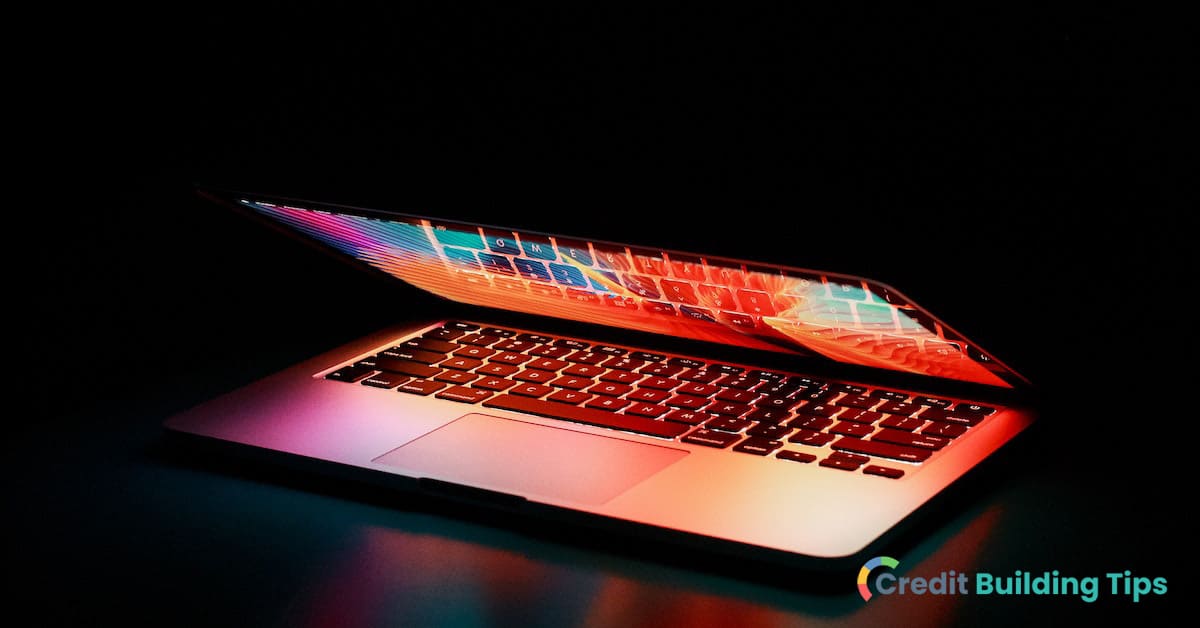
CreditWise is a tool that lets you monitor your VantageScore 3.0 credit score.
There are two primary credit scoring models: FICO and VantageScore. Each of these credit scoring companies have released different versions over the years. CreditWise gives you access to your VantageScore 3.0.
You can access CreditWise from both your laptop or desktop as well as from your phone. Looking at your credit score on CreditWise won't ding your score.
This service is free regardless of whether you're a Capital One customer or not.
There are a number of features that Capital One CreditWise offers to help you keep track of your credit score and even work to improve it:
If you're looking to stay on top of your credit score, CreditWise is a free resource available to everyone.
With any service like this, though, there are going to be pros and cons.
On the plus side, CreditWise lets you:
On the other hand, some of the cons of CreditWise are:
When you use the CreditWise credit monitoring service offered by Capital One, you're receiving your VantageScore 3.0 calculated using your TransUnion credit report.
Each individual usually has multiple credit scores. There can be variations between scores depending on the credit bureaus, scoring models, and industry-specific needs of a lender.
So, is CreditWise accurate?
The answer is:
Credit monitoring services can be useful tools to help you monitor your financial health. At the same time, each of them will use certain credit bureaus and credit scoring models, meaning that there will likely be variations between scores depending on which service you use.
That being said, it's possible that the credit score you see will be slightly different than the score a potential lender will be looking at. Let's look closely at why you probably have several different credit scores and what this means.
When we talk about credit scores, we often discuss them as if each individual has one set credit score. The truth is, though, most people will have multiple credit scores.
Because there are a number of different credit scoring models and three major credit bureaus, most individuals don't just have one score.
Here are some of the key factors that influence your different credit scores and can explain slight variations between them:
When you combine all of these factors, each individual can end up with quite a few different credit scores. If you're applying for a loan or line of credit, the score that a particular lender will use can depend on the purpose of the evaluation, preferences, and industry standards.
There are lots of different credit monitoring services out there. CreditWise is only one of the options on the table.
Some other free services that are well-regarded for reliability and accuracy include:
Some paid services that are well-regarded for reliability and accuracy include:
For more information about other popular credit monitoring services, check out our post on Rocket Money and our guide to Credit Karma and Experian.
Experts say that you should check your credit report and score at least once a year. However, checking in more frequently with your credit score can help you catch potential signs of credit card fraud or identity theft. It can also help you prepare for big financial decisions, such as taking out an auto loan or a mortgage.
This service uses your TransUnion credit report to calculate a VantageScore 3.0. Since you have different credit reports and different credit scoring models, you probably have several different credit scores that might vary a bit.
That being said, using CreditWise or another credit monitoring service can be a great way to check in with your general financial health.
Have you realized it's time to build or improve your credit? Starting early before you expect a lender to check your credit can help you access broader financial opportunities down the road. Make sure you check out our Credit Building Tips blog for more valuable resources!
Are you hunting for a new place and you're wondering which credit score apartments look at when you apply?
The notion that landlords and property managers will run a credit check before renting an apartment to you can seem a bit mysterious. How do they get your credit scores? What information do they scrutinize?
 Every landlord and property manager will have their own criteria they judge applicants by. Some might not check your credit at all, while others might run full credit checks and background checks.
Every landlord and property manager will have their own criteria they judge applicants by. Some might not check your credit at all, while others might run full credit checks and background checks.There are a number of services that can be used to obtain a prospective tenant's credit report. Depending on how a landlord gets this information, it will impact which credit bureau your info is being pulled from and what credit scoring model is used.
When you're looking for a new apartment, you'll likely find that potential landlords want to run a "credit check." Since it is a common practice for landlords or property managers to check your credit, your credit file can have a big impact on your apartment search.

The term "credit check" can ultimately mean a number of different things. For example, some landlords might just check your credit score and verify your identity. Others might pull your credit, run a background check, and even look at county records, social media, and bank statements.
Some of the ways a landlord or property manager might check your credit include:
Landlords can sometimes obtain tenant credit reports using organizations like the National Association of Independent Landlords.
The credit check might be a hard inquiry, depending on the particular association they are getting the report from. Hard inquiries (also known as "hard pulls") can make your credit score go down a bit for a brief period of time.
There are a number of different tenant screening services out there, some of which offer credit reports for property managers and landlords.
Some common types of info access through these services include:
Some services might simply allow landlords to enter a desired range for credit scores and then see whether or not a potential applicant qualifies based on the parameters they set.
There are also a number of credit screening products available through the three major credit bureaus-- Equifax, Experian, and TransUnion.
These inquiries are often only considered soft inquiries. This means that it won't have an impact on your credit score and won't even be visible to anyone other than you on your credit report.
In some cases, you might have to initiate the credit check as the renter.
The answer to this question is-- it depends.
The credit report that is used to calculate your credit score when you are applying to an apartment is going to depend on a number of factors.

When you request your credit reports from the three major credit reporting agencies-- Transunion, Equifax, and Experian-- usually, there won't be a credit score on the document.
However, you can typically purchase your credit score from the credit bureaus or access a free credit score through:
There are two primary credit scoring models, which are:
The fact that different credit scoring models can be used in combination with different credit reports actually means that you have several credit scores.
Whether a landlord association will offer your FICO or VantageScore will depend on their standard practices. Beyond that, which credit report they pull your information from can depend as well.
There are a number of different tenant screening services out there, including:
Which credit score your prospective landlord sees will depend on the practices of the service. That being said, FICO scores are more commonly used by landlords than the VantageScore model.
If your landlord is using Equifax to check your credit, they'll see a FICO score. If they use Experian, they'll see a VantageScore. Through TransUnion's services, they'll access a score known as the ResidentScore, specifically designed to predict the likelihood of evictions for a tenant.
Landlords might check one of your credit scores, or they might do a more thorough dive into your credit report and other aspects of your financial history.
Some smaller landlords might not even check your credit score, but this is less and less common.
Typically, landlords know that actually looking at the details of a credit report is more useful than just looking at a credit score. A person's credit score can be severely damaged by identity theft or an outrageous medical bill, for example, even if they have otherwise been a responsible borrower.
When a landlord does choose to look at a credit report, they'll likely look at the following:
The credit score you'll need to be approved for an apartment is going to depend on the particular landlord or property manager. Every apartment complex or landlord is going to have their own rubric for evaluating whether a tenant is a good candidate for an apartment.
Though there is no set credit score minimum for renting an apartment, many landlords will look for a score of at least 600.
That being said, you'll typically find that most landlords and property managers will want you to have a credit score above 600.
Both FICO scores and VantageScores range from 300 to 850. The higher your credit score, the more appealing you appear as a renter because it shows you've managed your finances responsibly. Lower credit scores, on the other hand, can indicate that you might have a hard time paying your full rent on time every time.
Finding an apartment can be incredibly stressful regardless of your credit score. When you're credits seen better days, the whole search can feel particularly disheartening. Let's take a look at some of the most common questions about credit scores and renting an apartment.
The more information you have, the better prepared you'll be during the application process.
Reviewing the credit history of a prospective tenant is common practice for many landlords. However, that doesn't mean that all of them will check your credit score or pull your credit report when you are applying for apartments.
In addition to (or in lieu of) credit scores and credit reports, they might look to other factors to make a decision, including:
Of course, every landlord is going to be different. However, if you're worried about your credit it's worth understanding, in general, which types of landlords are more or less likely to check your credit.
For example, you're much more likely to have your credit checked if you're applying for a place through one of the following:
If you have bad credit or no credit, you might be wondering where you can apply where your credit won't be a problem.
While it's hard to generalize, you might want to look into the following types of rental situations and landlords:
There are a lot of different factors that a landlord or property manager will take into account when choosing a tenant. This means that your credit scores and the information on your credit reports are just a portion of the equation.
Beyond that, not every landlord even looks at credit scores. Though you'll be hard-pressed to find a big property manager that doesn't check credit scores, smaller mom-and-pop landlords might not check prospective tenants' credit.
Even if they check your credit, it's important to remember that other factors could help you qualify. For example, they might verify your income and employment. They could additionally use a tenant screening agency to do a background check.
In short, having a bad credit score doesn't necessarily mean that you can't rent an apartment. Some landlords might look at the entire application as a whole if they find that the score comes back just a bit short. You also might find that explaining the circumstance that led to a low credit score helps you in your search for an apartment.
Sometimes, the hardest part of the credit journey is just getting started. If you don't have any credit at all, how are you supposed to start building credit or get your own apartment?
One of the easiest ways to go about this is to find a family member or a friend that has good credit that will co-sign your lease.
At the same time, you'll want to ensure you're signing a lease you can pay for every month. Otherwise, you're putting your family member or friend in a rough position and potentially damaging their credit.
Another option is to offer to pay several months of rent right at the beginning. While this might not be financially possible for everyone, paying for several months can help reduce the risk for the landlord and get your foot in the door.
Most landlords and property managers understand that people's finances can be a bit messy. They aren't necessarily looking for you to have an 850 credit score.
That being said, there are some derogatory marks that can lead them to turn down a prospective renter. This can be the case even if their credit score falls within the acceptable range.
When landlords look at an entire tenant screening report, such as one that includes public records and other information, they also might reject applicants that have criminal convictions or past evictions.
When you're applying for apartments, your prospective landlord or property manager could use any number of services to check your credit. Some might only look at your credit score range, while others might dig into your personal credit history and background check.
Depending on the service, your information could be pulled from Experian, Equifax, or TransUnion. Beyond that, the credit score they see could be calculated using either the FICO or VantageScore model.
This can mean it's difficult to know what score your potential landlord will be looking at. One of the best things you can do to prepare for the housing search is to request a free copy of each of your credit reports using AnnualCreditReport.com. This is the federally authorized site put together by the three major bureaus.
Even though you might not always know precisely how your credit report will be interpreted when you apply for an apartment, knowing what's in your report can help you prepare to provide context.
Looking at your credit report ahead of time can also help you dispute any errors or inaccuracies before a landlord takes a look and evaluates whether you'd be a good tenant. If it's time for you to clean up your credit, check out our Credit Building Tips blog.
A bankruptcy discharge releases an individual from their legal obligation to repay a debt. This is a permanent order that prohibits creditors from taking any more collection action against the debtor.
Though bankruptcy is often seen as a fresh start for debtors, it doesn't mean that your slate will be wiped completely clean. Both the bankruptcy itself and the discharged debt will show up on your credit report.
 Is there anything you can do to remove discharged debt from your credit report? How do you remove incorrect information from your credit report about discharged debt after bankruptcy?
Is there anything you can do to remove discharged debt from your credit report? How do you remove incorrect information from your credit report about discharged debt after bankruptcy?In this article, we'll take a closer look at everything you need to know about forgiven debt after bankruptcy and what it means for your credit file.
If a debt is discharged, it means that you aren't liable for the debt anymore. Beyond this, the lender or creditor isn't allowed to try and receive the money that is owed.
Essentially, debt discharge is the cancellation of a debt. This occurs via the process of bankruptcy.
The people that file for bankruptcy (often referred to as "debtors") will commonly go through this process to remove their obligation to pay certain kinds of debt and obtain a fresh start financially. Though not every single type of debt is dischargeable, most typical consumer debts are dischargeable.
It's possible for taxable income to result from debt discharge unless there are certain conditions met as defined by the IRS.
Discharged debt can result from bankruptcy rulings. If the debtor meets all of the court's criteria in Chapter 7 or Chapter 11 bankruptcy, the court might discharge the debt.
A person or company that has a debt discharged by a court doesn't have to pay back the debt anymore and the lenders aren't allowed to try and make attempts to collect the debt.
Unless the forgiveness is a bequest or a gift, a debt discharge is often something that results in taxable income. If the debtor meets the requirements laid out by the IRS, however, some debt discharges are exempt from paying taxes.
A person that is filing for bankruptcy is trying to eliminate as much of their debt as they can. This allows them to start over financially.
Either immediately or at the end of the bankruptcy process, a number of types of debts will be discharged. The following are some of the types of debts can be discharged:

In Chapter 13 bankruptcy, some additional types of debt are eligible for discharge, including:
Though there can be specific exceptions, there are certain types of debt that typically aren't allowed to be discharged through the bankruptcy process. These debts were deemed to be not eligible for discharge by the U.S. Congress for reasons of public policy:

Qualifying for discharges for these debts is usually very hard to do. You will need to prove that you wouldn't be able to maintain a minimal standard of living if you continued to make payments. You also usually can't discharge penalties and fines from government agencies that resulted from breaking the law, or debts resulting from a drunk driving incident that resulted in personal injury debts.
Other debts that are unlikely to be discharged include:
If you've gone through the bankruptcy process and some of your debts have been discharged, this information will typically show up on your credit report. They can stay on your reports for a long time, which can have a negative effect on how lenders view your creditworthiness.
Technically, you are not supposed to be able to remove accurate information from your credit report. For this reason, there is no guarantee that your attempts to remove correct debt discharge information will be successful.
If the debt discharge is showing up in error or the information regarding them is incorrect, you will definitely want to dispute the information. Any inaccurate information on your credit report should be disputed so that your financial opportunities aren't harmed by incorrect data.
The first step is to review each of your credit reports, which you can get for free from AnnualCreditReport.com. Take a look at your accounts and locate all of the information about the discharged debt that you believe is inaccurate.
Before you file a dispute, it's worth doing some sleuthing to make sure that the information is actually incorrect as you think it is. Take a look at your own records and compare them to what you see on your credit report.
You will want to file disputes with every credit bureau that is reporting inaccurate information. You can do this online, over the phone, or through the mail.
Unfortunately, you won't receive an answer right away-- it will usually take 30 to 45 days to hear the results of the credit bureaus' investigation. Hopefully, they will find, as you have, that the information is incorrect and should be altered or removed. If they don't rule in your favor, though, you can shift your focus toward rebuilding your credit through other means.
Cleaning up your credit report can take time, and some information you will have to wait to fall off your report if it is accurate. Make sure you check out our guides to removing collections, dispute comments, evictions, and late payments if you are ready to improve your credit.
After bankruptcy, there are a number of errors that can appear on your credit reports when it comes to discharged debts. Let's look at some of the most common errors to help you understand what steps you should take.
If you had a debt that was discharged as a result of bankruptcy, it should be noted as "discharged in bankruptcy" or something along those lines on your credit report. The balance due, regardless of how much you originally owed, should read $0.
If you go through all of the trouble to have your debts discharged and your credit report states that you still owe your creditor, it's natural to be surprised and disturbed.
It's possible that your credit report hasn't been updated yet-- if the debt discharge only recently occurred, this is likely the case. Otherwise, you can dispute the information either with the creditor or the credit bureaus to make sure that your report accurately reflects the new debt amount-- zero.
When you have a debt discharged through bankruptcy, it completely severs the relationship that you had with the creditor or lender. This party no longer has any legal right to try and recoup the money you owe and they also don't have any legal right to pull your credit every month.
When lenders do a hard inquiry into your credit, it will bring down your credit score. You'll want to dispute these inquiries in order to have them removed from your report.
Creditors can choose to charge off a credit card account for a number of reasons. However, they are not allowed to do this if you've received a debt discharge or filed for bankruptcy. When a charge-off shows up on your credit report, it will damage your credit score as well as how you appear in the eyes of a potential lender.
If your debt is listed as charged off instead of discharged, you'll want to dispute this information.
Particularly common after Chapter 13 bankruptcy, former creditors will sometimes report that you still owe them money even after your debt has been discharged. Secured creditors are most guilty of this.
For example, let's say that you had a car that you were upside down on that you surrendered to the bank. Let's say that you owed $40,000 and it was only worth $30,000.
That $10,000 is no longer secured debt-- it turns into unsecured debt. This debt either gets paid or doesn't get paid in accordance with the Chapter 13 plan that resulted from the court proceedings. If the debt is discharged, the money is not owed to the lender.
If you believe that you don't owe a creditor more money but they are still reporting that you do on your credit report, you'll want to dispute this information with the creditor, the credit bureaus that are reporting the incorrect information, or both.
In bankruptcy cases, sometimes debts will be reaffirmed rather than discharged. This occurs when a debtor wants to pay a specific debt even though it could potentially be discharged through the bankruptcy process.
For example, a debtor might choose that they want to hold on to their car and continue paying the debt on it. This debt could then be reaffirmed rather than discharged. The debtor is, therefore, still responsible for paying back the money they owe.
Sometimes, this will show up on a credit report as discharged in bankruptcy rather than reaffirmed. You can correct this information on your credit report by disputing it with the credit bureaus or the creditors themselves.
When a married couple has joint debts and one spouse files for bankruptcy while the other does not, the non-filing spouse will likely see information on those joint accounts that say something along the lines of "included in bankruptcy." This is to be expected.
However, sometimes the non-filing spouse will actually see information on their credit report that claims that they themselves filed for bankruptcy either under the public records section or attached to one of their solely-owned accounts.
Incorrect information like this on your spouse's credit report can be very damaging to their score unnecessarily. You'll want to dispute the information in order to have it corrected.
Bankruptcy can, in some ways, be a fresh start, but you don't necessarily get to begin with a completely clean slate. Discharged debts will show up on your credit report and remain there for some time, and bankruptcy will show up in your public records.
Even if you aren't able to completely remove discharged debts from your credit report, there are a number of things you can do to rebuild your credit over time. Though it can feel like an uphill battle, it's worth investing in your credit to ensure that as many financial opportunities as possible are open to you down the road.
Are you searching for more resources to help you build your credit? If so, make sure you check out our Credit Building Tips blog.
You've received your new credit card-- congratulations! You've been told that your credit limit is $1,000, but you've also heard through the grapevine that you shouldn't spend the full amount.
So, how much should you spend?
 Experts generally advise keeping your credit utilization ratio-per-card and overall-- at 30% or less. For a credit limit of $1,000, this means the maximum you should spend is $300.
Experts generally advise keeping your credit utilization ratio-per-card and overall-- at 30% or less. For a credit limit of $1,000, this means the maximum you should spend is $300.At the same time, the 30% rule is just a guideline. A lower credit utilization ratio is always better, but the most important thing is that you don't spend more than you can swiftly pay back. If you're buying a house or otherwise need your credit score to be in tip-top shape in the near future, it's best to keep your credit utilization ratio low.
When you have a $1,000 credit limit, you might assume there's no problem with spending the full $1,000 within a billing cycle.
If you want to maintain a credit utilization ratio below 30% for your credit card with a $1,000, you will want to spend $300 or less each billing cycle.
There are a few reasons why you might not want to spend your entire credit limit, though. In fact, many credit and financial experts will advise that you keep your credit utilization ratio at 30% or lower.

A $1,000 card limit means spending no more than $300.
The other factor to consider is how much you can afford to pay back. In general, it's a good idea to pay off your entire credit card balance every month rather than carrying a balance that accrues interest.
Ok, so let's back up a step.
What exactly is a credit limit? What does having a $1,000 credit limit on your credit card mean?
- Your credit limit is the total dollar amount you're allowed to charge to your credit card by the card issuer.
At the time you submitted an application for the new card, the lender took a look at your financial history and credit profile in order to determine the maximum amount of money that they would extend to you in the form of revolving credit. The amount they will extend to you before cutting you off is your credit limit.
It might feel a bit mystifying when you receive word of your new credit limit-- how did the company determine how much money you have access to?

Some of the factors that lenders will consider when setting your credit limit are:
If your credit limit is other than $1,000, you can still easily calculate the maximum amount of money you should spend based on the 30% rule of thumb.
Here's the formula for determining the most you should spend in order to maintain a 30% credit utilization ratio:
- Credit limit x 0.3 = Maximum you should spend to maintain 30% credit utilization ratio
Of course, there is both the credit utilization of each card to be concerned with and your overall credit utilization ratio. In the next section, we'll talk a bit more about each of these.
One of the factors that influences your credit score is your credit utilization ratio. In fact, it's one of the most influential factors in your credit score.
This is a ratio (expressed as a percentage) that relates the amount of money you owe on your revolving credit accounts to your total available credit.
Your credit utilization ratio is a percentage that describes how much credit you're using out of all of your available credit. There are two types of credit utilization ratios: per-card and overall.
For example:
The general rule of thumb is that you should have a credit utilization ratio of 30% or lower in order to maintain good or excellent credit scores. When it comes to the credit utilization ratio, a lower one is always better for your credit.
According to Experian's director of public education, Rod Griffin, exceeding a 30% credit utilization ratio will "have significantly negative impacts on credit scores." He also states, "The 30% level is not a target, but a maximum limit."
If you're aiming to have truly incredible scores, you'll probably want your credit utilization ratio to be in the single digits. According to a senior director for FICO, “Consumers with FICO scores of 800 use, on average, 7% of their available credit.'
It's worth noting that you'll want to be aware of your credit utilization rate from two different angles:
Your per-card utilization measures the percentage of the credit limit you're using for each card. Your overall credit utilization considers the percentage of credit you're using compared to all of the credit available to you.
Your credit scores will incorporate information about both your per-card and overall credit utilization ratios.
This means that you can't necessarily open a brand new card in order to try and counter the negative effects of having a maxed-out card.
The better way to go about things is to make sure that you aren't using more than 30% of the credit limit on any of your individual cards. When you make sure you're keeping your utilization low on each card, it means that you won't have to worry about your overall utilization.
For example, if you have three cards with different credit limits and your utilization ratio is 25% for each of them, your overall credit utilization ratio will also be 25%.
Understanding your credit limit is important to make sure that you use your credit card responsibly. Let's take a look at some frequently asked questions to help ensure that your credit score and report stay in tip-top shape.
Maxing out your credit card means that you've spent your entire credit limit. If your credit limit is $1,000, for example, maxing out your card would mean you have a $1,000 balance.
It's generally a good idea to avoid maxing out your credit cards. There are a number of negative consequences that can result, including:
If you max out your card and you're hoping to buy a house, finance a car, get a new credit card, or even rent an apartment, it could impact your ability to get approved due to a credit score drop.
Additionally, you have to be very careful maxing out your credit cards because of the potential for spiraling debt. The average American consumer has more than $5,000 in credit card debt. When you carry a balance from month to month, you'll be accruing interest payments and owing more and more with each statement.
Your credit score can be negatively impacted when you max out a credit card. There are, however, a lot of different factors that will influence the extent to which your score is affected. These include:
What Happens When You Go Over Your Credit Limit?
Yes, it's possible to increase your credit limit. You can either ask the credit card company for an increase or wait for them to offer one to you.
However, the policies regarding credit limits are going to vary depending on the credit card issuer, and there's no guarantee you'll get one if you ask for one.
Increasing your credit limit can lower your credit utilization ratio and therefore have a beneficial impact on your credit score.
If you're interested in increasing your credit limit, there are a few things you can do to improve the odds you'll be approved:
Credit cards can be incredibly useful financial tools, but using them responsibly is essential. If your credit limit is $1,000 on a new card, you'll want to consider the different factors before racking up a $1,000 balance.
The general rule is that you want to keep your credit utilization ratio as low as possible-- both per card and overall-- to keep your credit score in good shape.
That being said, maybe you have no intention to take out a loan or get a new credit card anytime soon. If that's the case, you don't have to be obsessive over keeping your credit score perfect at the moment. The more important thing, then, is ensuring that you don't spend more than you can afford to pay back in a timely manner.
Staying on top of your credit score and credit report can be much easier than rebuilding credit after it's taken a nosedive. At the same time, rebuilding your credit is possible if it's less than ideal.
Whether you're starting from scratch building credit, trying to make sure you maintain a high credit score, or trying to improve your score after a few bad years, make sure you check out our Credit Building Tips blog for more credit resources.
If you've recently been approved for a credit card and your credit limit is $300, you might be wondering how much you should spend.
The first answer is never to spend more than you can afford to pay back! The second answer, though, has to do with maintaining a healthy (aka low) credit utilization ratio.
 One factor that influences your credit score is your credit utilization ratio, which compares how much credit you're using to how much you have in total. Using the general advice that you should keep your utilization at 30% or lower, you'll want to spend no more than $90 on a $300 limit card.
One factor that influences your credit score is your credit utilization ratio, which compares how much credit you're using to how much you have in total. Using the general advice that you should keep your utilization at 30% or lower, you'll want to spend no more than $90 on a $300 limit card.At the same time, many different factors might make you decide to spend more or less than this amount. Let's look at what you should know about credit limits and utilization to help you decide how much to spend.
If you have a $300 credit limit on your credit account, how much should you spend if you want to maintain a good credit score?

Credit experts generally advise that you should keep your credit utilization ratio at 30% or lower.
Your credit utilization ratio is a percentage that represents how much money you're using on your credit accounts compared to how much credit has been extended to you.
However, if you want to have immaculate credit, some suggest that you keep your credit utilization ratio in the single digits.
The total amount of money you are authorized to charge to a credit account by a credit card issuer is your credit limit.
Both new purchases and balance transfers are included in your credit limit. On top of that, any other transactions- that draw from your credit line-- like cash advances-- are also included.
If you have an annual fee for your credit card, this will also be charged against your credit limit.
There are three primary ways that a credit card issuer will determine your credit limit.
There are some credit cards that come with a certain credit limit when you first open the account.
For example:
On the other end of the spectrum, a starter credit card might come with a $300 or $500 credit limit.
With this type of card, the credit limit isn't really a personalized decision. The issuer will look at your credit to determine whether to issue you the card, but they won't usually use your score to decide a precise credit limit for your account.
For most credit cards, your credit score will be used to determine your credit card limit.
This means that the factors that influence your credit score will impact your credit limit, including:
Other factors that credit card companies will incorporate when deciding on your limit include:
The process of determining your credit limit based on your credit score is similar to how credit card companies determine the interest rate they will offer you. Some credit cards will have a range of credit limits, and people with lower credit scores will be given a credit limit on the lower range, while people with higher credit scores will be given a credit limit on the higher range.
In some situations, credit card issuers might create a customized credit limit for consumers. This is a way for companies to minimize risk when they are giving applicants access to new lines of credit.
Some issuers will consider your debt-to-income ratio or income when determining your customized score. Others will use a grid system to compare a number of different scores associated with your financial history.
The most important thing when it comes to figuring out how much to spend on your credit card is ensuring that you only spend what you can afford.
Though it's not a disaster to carry a small balance on your credit cards, you will be paying interest if you don't pay off your balance in full every month (unless it's a promotional 0% APR card with an introductory period.)
Charging more purchases to your account than you can afford is a risky game, as it makes you very vulnerable to spiraling debt. Being buried in credit card debt is something you'll want to avoid at all costs, if at all possible.
If you need your credit score to be in tip-top shape, you'll want to keep your credit utilization ratio at 30% or lower. This means that whatever your credit limit is, you can multiply it by 0.3.
The maximum balance you should carry on your card at any given time is the result.
Your credit limit is simply the amount of money that a credit card issuer is extending to you on a particular account.
A higher credit limit can help you achieve a lower credit utilization ratio if you practice responsible credit usage. On the other hand, having a lower credit limit can ensure you don't spend more than you can afford to repay.
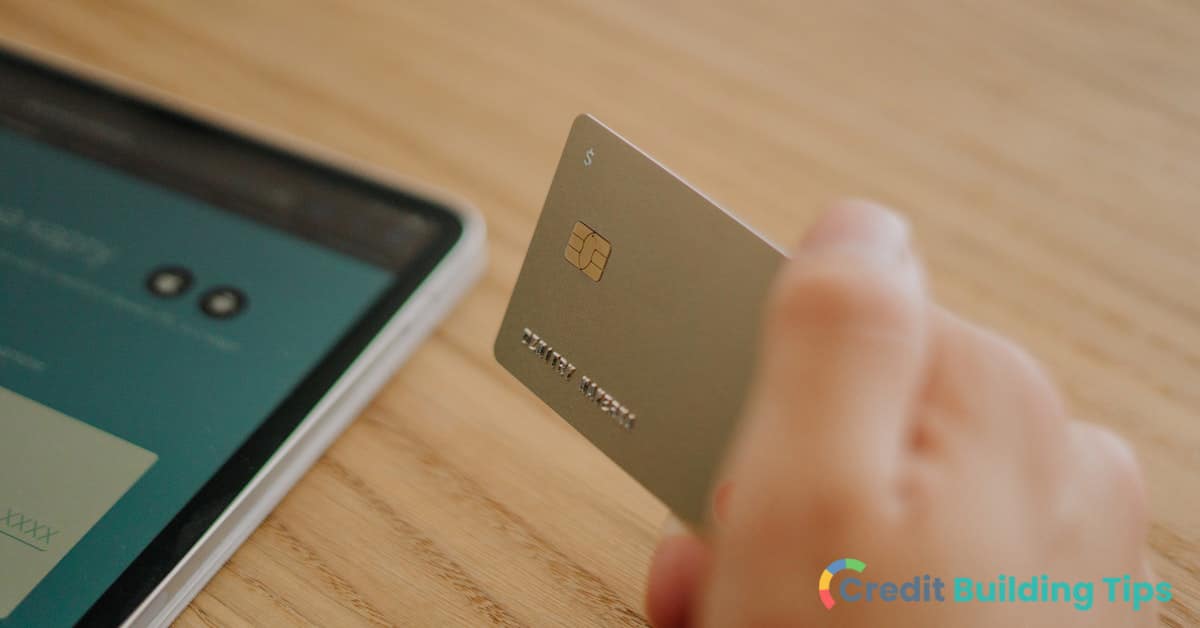
According to data from TransUnion, the average credit card limit is around $13,000. However, consumers usually need to have little to no existing debt and a high income to achieve a credit card limit this high. The average American has, in total, access to a little more than $30,000 via their credit limits.
If you got a new credit card to help with your credit score and are disappointed with the low limit, it's worth understanding that using the account responsibly is the thing that will help your credit the most. After your account has been open for a specific number of months (this number will depend on your issuer) you can also request a credit limit increase.
Your available credit is different from your credit limit. Your available credit is how much credit you have left after your balance is subtracted from your credit limit.
For example:
If you pay off your entire balance in full, your available credit will reset back to your credit limit.
Having a higher credit limit comes with some benefits and drawbacks. If you recently opened a new card and you are unhappy with the limit being too low, you can request a credit limit increase. For new cards, though, you'll probably need to wait a certain number of months before the issuer will raise your limit.
Some of the pros of having a higher credit limit include:
On the other hand, having a higher credit limit can have some downsides:
If you decide that you want to ask for a higher credit limit, there are a few avenues you can take:
Even if you're frustrated that your credit limit is $300 and not more, it's important to remember that everyone has to begin their credit-building journey somewhere!
If your limit is $300, you'll likely want to spend 30% or less of your credit limit to maintain a good credit score. In the case of a $300 limit, this means $90 or less. At the same time, how much you spend will depend on several other factors that are unique to your situation. And, you don't want to forget the most important question to ask yourself when deciding how much of your credit limit to use-- how much can you afford to pay back?
Managing a credit card account responsibly-- no matter how low the credit limit-- will help you improve your credit over time. Whether you have a thin credit profile or you're trying to increase your less-than-ideal score, it's worth investing time and energy into building your credit with responsible credit use.
Are you on a journey to improve your credit so you can have access to better financial opportunities? If so, make sure you check out the rest of our Credit Building blog!
Having one (or more) of your accounts sent to collections can have a big impact on your credit. If you need a good credit score for an upcoming loan application, you might be wondering: can you have a 700 credit score with collections?
The answer is: it depends.
 Maintaining a 700 credit score is technically possible even if you have collections. That being said, most collection accounts are going to have a significantly negative impact on your credit score, particularly when the accounts were opened recently.
Maintaining a 700 credit score is technically possible even if you have collections. That being said, most collection accounts are going to have a significantly negative impact on your credit score, particularly when the accounts were opened recently.There are a few types of collections accounts that aren't factored into credit scores using some credit scoring models. On top of that, several variables will influence how much of a drop your score experiences due to having a debt in collections.
When a collection agency opens an account, it will report the account to at least one of the credit bureaus, if not all three.
Collections accounts on your credit report are almost always going to negatively impact your credit. Though more recent FICO and VantageScore credit scoring models ignore paid collections accounts, older models will still incorporate paid collections as a negative mark.
When one of your debts goes to collections, it will most likely damage your credit score. Even when you have paid the debt, it can continue to hurt your credit, depending on the credit scoring model being used.
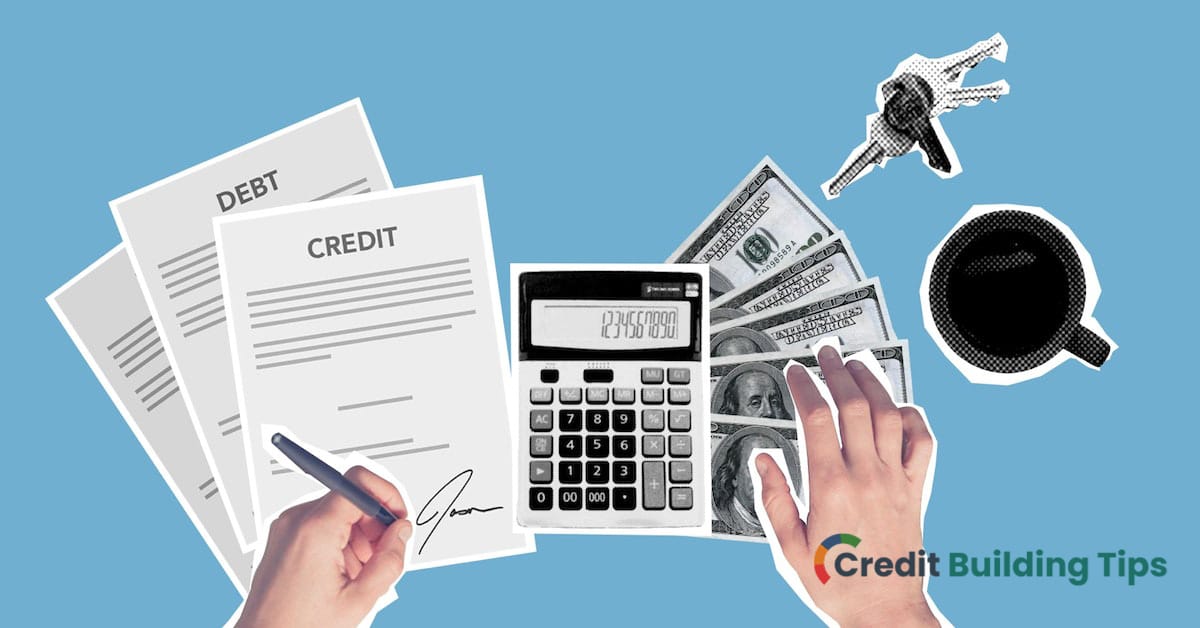
Obtaining a credit score of 700 or more isn't technically impossible with a collection account on your report, but it's also not common, particularly if the collection account is new. There are a number of factors that will influence how much of an impact a debt in collections will have on your credit score, including:
How much a collections account makes your credit score drop will depend on a number of factors, including those listed in the previous section. However, it's worth understanding that having a debt sent to collections could reduce your score by more than 100 points.
It might seem unfair, but the better your credit score was to start out with, the more a debt being sent to collections will hurt your score.
For example:
That being said, many debt collectors will wait a specific period of time before reporting to the credit reporting agencies. This means that if the collections account is new it may not have been reported to the credit bureaus yet.
It's not a guarantee that you'll be able to settle the debt before it ends up on your credit report. However, if you've just received your first notice, it could be worth trying to determine whether you can pay the debt and avoid the collection account showing up on your credit file.
When a collection account appears on your credit report, it means that you defaulted on a loan. Though some creditors have their own in-house collection departments that will try to recoup the money they lent you, many will charge off the account. The debt was either consigned or sold to a collection agency by the original creditor.
When a collection account is reported to the credit bureaus, it can stay on your report for seven years. Though practices can differ between creditors, unpaid debts are often sold to collections agencies when a debt goes unpaid for about six months.
The original creditor passes the debt to a third party in order to try and recoup as much of the debt as possible.
Leading up to a debt being sent to collections, you will have missed a certain number of payments on the debt. These will also show up on your credit report as derogatory marks.
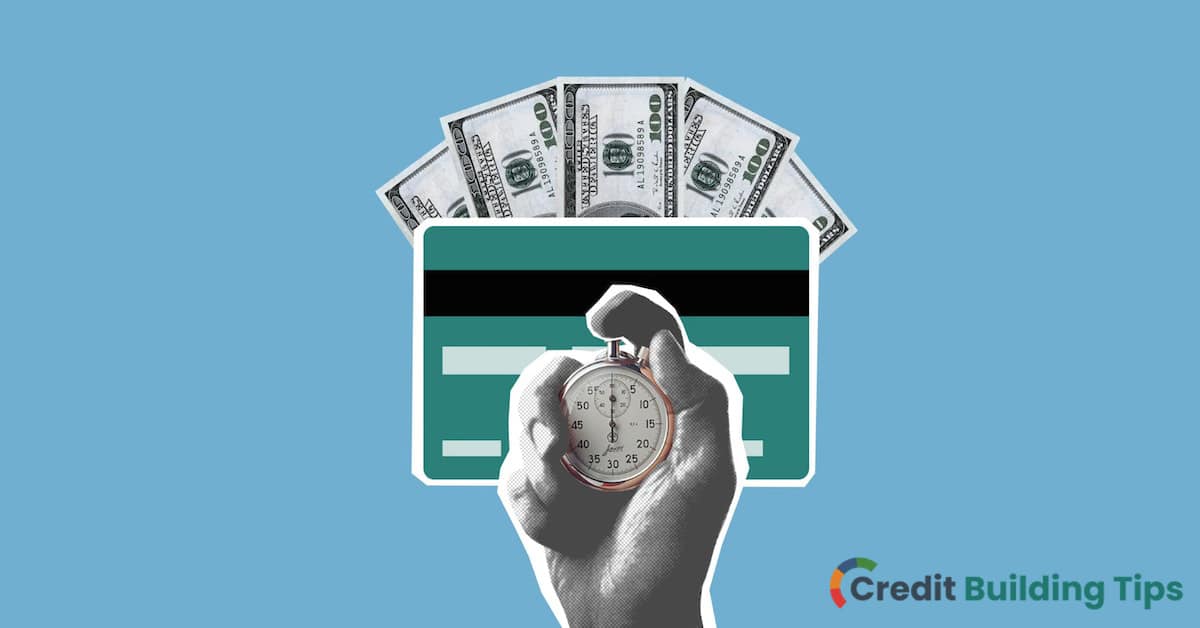
There are a number of different types of debt that can be sent to collections, including:
Both VantageScore and FICO credit scoring systems will take collection accounts into their calculations when determining your credit score.
A collections account is considered a part of your payment history, which is the category with the heaviest weight when it comes to your score. This means that an individual that has collections on their credit reports will most likely have less favorable credit scores when compared to individuals that don't have any accounts in collection.
Having a debt in collections will likely negatively impact your credit scores. Even paid collections can remain on your credit reports for seven years. However, the severity of the affect on your credit scores will diminish over time.
Having a collections account on your credit report won't just damage your scores, though-- it can also influence lender decisions down the road. If you're planning on applying for a mortgage, car loan, or credit card, that debt in collections might sully your chances. As an example, Fannie Mae will require applicants to pay off debts in collections before closing on a home loan in many instances.
We'll dive into this topic a little deeper in the next section.
Whether or not paying off your debts in collections will improve your credit score depends on the credit scoring model that is used to calculate your score.
For example, the newest FICO and VantageScore versions ignore collections that no longer carry a balance. This means that you might see an improvement in your VantageScore 3.0, VantageScore 4.0, and FICO 9 score after paying off debts in collection. However, if you are looking at a credit score that is calculated using an older model, paying a collections account won't improve your score.
You might assume that all creditors and lenders will use the latest models for calculating credit scores, but this actually isn't the case. For instance, mortgage lenders tend to use older credit scoring models, which will penalize you even for paid collections accounts.
If you're considering applying for a mortgage and you're wondering how your collection accounts will impact the score that lenders see, it's a good idea to check out your FICO 8 score. This will help you better understand the numbers a lender will encounter when looking at your credit score.
Though collections accounts aren't usually good news for your credit scores, the impact can depend on the type of account. In fact, some types of debt collection accounts might not have any effect on your credit score at all.
Collections accounts will stay on your credit report, in many cases, for seven years even after you've settled them or paid them in full.
Paid collections were used in older credit scoring models, but they no longer figure into the following versions of FICO and VantageScore:
While this might sound like good news, it's worth noting that not all lenders and creditors use the latest credit scoring models. In fact, accounting to Nerd Wallet, FICO 8, which does penalize paid collections accounts, is used in most credit decisions.
According to the Kaiser Family Foundation, there are more than 100 million Americans that are struggling to pay medical bills. In an attempt to give consumers a little bit more breathing room when it comes to repaying their debts, Experian, TransUnion, and Equifax have made big changes to their medical debt reporting policies.
These types of medical debts won't show up on your credit report anymore:
FICO 9 and VantageScore 3.0 and 4.0 also don't put as much weight on unpaid medical debts in a collection as they do on other types of debts in a collection.
While unpaid medical debt can still negatively influence your credit score, these changes can help reduce the impact of medical bills on many Americans' credit scores.
Also known as "nuisance" accounts, FICO Score 8 and later models don't incorporate small-dollar collections. Essentially, collections account for debts less than $100 won't factor into your score if you're using a more recent FICO scoring model.
Though FICO and VantageScore calculate credit scores in slightly different ways, there is a collection of factors that will impact your credit score using either model. As we look at how each score is calculated, you'll see a number of similarities between the two models.
There are five primary factors that go into calculating your FICO Score. As the most widely used and popular credit scoring model, it's worth watching your FICO Score.
The FICO credit scoring model is used in lending decisions more often than your VantageScore, so it's worth keeping tabs on your score and understanding how it is calculated.
The main factors that impact your FICO score are:
VantageScore uses similar but not identical categories to calculate credit scores. Starting with the most influential to the least influential, here are the factors:
Is 700 a good credit score? Is dropping below 700 a problem?
The answer depends on whether FICO or VantageScore calculates your credit score and which version of each model is used.
The base range for FICO Scores is 300 to 850.
Here is the breakdown from poor to exceptional:
There are a number of different types of consumer credit scores created by FICO, with the "base" score available as a standard for lenders in various industries to utilize.
On top of that, they also calculate industry-specific scores for auto lenders and credit card companies. For these industry-specific scores, the scores can range from 250-900. That being said, a "good" score for an industry-specific FICO score is still anywhere from 670-739.
This means that 700 is considered a "good" FICO credit score whether the base score is used or one of the industry-specific scores.
The first two credit scoring models VantageScore released ranged from 501 to 990. However, VantageScore 3.0 and 4.0-- the newest versions-- use the same range as the base FICO Scores.
Categories for VantageScore 3.0 and 4.0 are broken down in the following manner:
As you can see, 700 is also considered a "good" credit score when the VantageScore model is used.
Unlike FICO, VantageScore doesn't offer industry-specific scores.
Though it is possible in some circumstances to have a 700 credit score even when you have a debt in collections, it's not likely. Unless your collections account fits into one of the types described above that don't have as much (or any) impact on your credit, a collections account usually has a pretty big impact on your score.
Though this might be disheartening, it's important to remember that negative marks, like collections accounts, will diminish in their impact on your score over time. After seven years, it should fall off your report. Whether you try to remove the account from your credit report or wait for it to fall off, remember that its impact isn't permanent!
Additionally, there are things you can do to improve your credit even when you have some less-than-ideal marks on your credit report. If you're on a mission to improve your credit, make sure you head over to our Credit Building Tips blog for more resources.
When you search the question "Is Rocket Credit Scores legit" on Google, you end up with a lot of mixed results. Some forums report that this is undoubtedly a scam, while others state that it's a service offered by the legitimate company Rocket Money Inc.
So, which is it?
 It appears that there may have been a website-- www.rocketcreditscores.com-- that was used as a part of a potential scam. This site is no longer active, though. On the other hand, there is a real company called Rocket Money (owned by the same company as Rocket Mortgage) that offers a personal finance app. One of the features of this app is helping you keep track of your credit score.
It appears that there may have been a website-- www.rocketcreditscores.com-- that was used as a part of a potential scam. This site is no longer active, though. On the other hand, there is a real company called Rocket Money (owned by the same company as Rocket Mortgage) that offers a personal finance app. One of the features of this app is helping you keep track of your credit score.Let's take a look at what you should know about accessing your credit scores using Rocket Money's service.
When you search for 'Rocket Credit Scores' using a search engine, you'll find all kinds of disconcerting information.
On Reddit and other forums; you'll find posts from people regarding job and apartment applications where they are asked to fill out an application on RocketCreditScores.com.
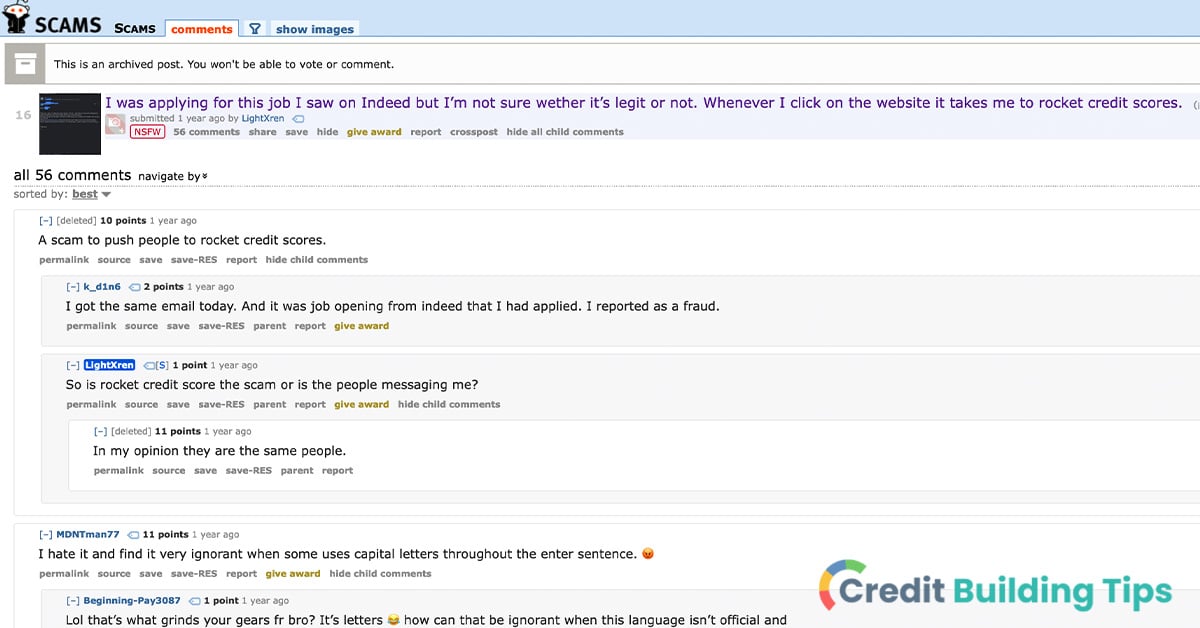
From the screenshots of the communications posted, it's clear that something fishy is going on. Littered with grammatical errors and spelling mistakes, scammers appear to have been posting too-good-to-be-true job posts, apartment listings, and houses for sale. They would then ask applicants to fill out an application that required them to pay one dollar, presumably allowing the scammers to access personal and financial information from unassuming individuals.
People who responded to the posts all made it very clear-- these types of listings are scams intending to steal people's sensitive information or money. They can use personal and financial information to commit credit card fraud or other forms of identity theft.
There have been Federal Trade Commission cases against individuals and companies running this type of scam. Schemers will advertise properties that they don't own and ask applicants to pay deposits, and direct them to credit score sites that they must pay for. While it isn't uncommon for landlords to run a background check and pull a credit report for potential tenants, you don't want to ever enter information into a site the landlord directs you to. You should also always be wary if they refuse to tell you the address of of the house or apartment.
If by 'Rocket Credit Scores' you mean www.rocketcreditscores.com, a link you've received in a suspicious email, the answer is no. This is not legit, and you shouldn't enter any personal information into this form. The job or apartment that is being advertised is almost certainly not real, and entering your information could result in identity theft and fraud.
On the other hand, if you're asking about the credit score monitoring service offered by Rocket Money, Inc., the answer is yes.
Whether or not this is the best way to monitor your credit is another question that we'll look at in the next few sections.
You're likely familiar with Rocket Mortgage, the largest non-bank mortgage lender in the United States.

Though the company started off as just a mortgage lender, they've grown into an entire ecosystem of companies. With an umbrella company known as Rocket Companies, the following businesses are a part of the Rocket family:
So, the short answer is that Rocket Money is related to Rocket Mortgage but not a part of the same company. The easiest way to understand it is to say that they exist within the same ecosystem of businesses.
Now that we've gotten that out of the way, what exactly is Rocket Money?
Here are some of the advertised features of the app:
The Rocket Money app can be found on both the Apple store and the Google Play store. With 256-bit encryption storing data and securely linked accounts using Plaid, this is billed as a secure and safe personal finance app.
While the app is free, there is also a Premium plan. You can sign up for their seven-day free trial in order to test it out, but after that, it costs between $3 and $12 a month. This is a sliding scale payment model where you can pay what you believe to be fair, though you'll want to keep in mind that $3 and $4 plans require paying for a whole year rather than giving you the option to pay per month.
It's perfectly reasonable to want to make sure that the credit score you see will be accurate before signing up for a service.
The reality is, though, that you actually have several different credit scores. This means that, depending on the site or service you use to check in with your credit score, you might find that your score varies.
There are a number of different factors that influence potential variations in your scores, including:
Rocket Money uses your Experian credit report and the VantageScore 3.0 scoring model in order to calculate your credit score.
As a counter-example, another popular site-- Credit Karma-- will offer your VantageScore 3.0, but based on your Equifax and TransUnion credit reports. If you use the free credit score service offered by Experian, they use your Experian credit report and calculate your score based on FICO Score 8 model.
This means that your score can come back slightly different from different services depending on the scoring model and credit reports information is being pulled from.
The answer to this question is going to depend on what you're looking for. There are lots of companies that offer free credit score monitoring, including credit card issuers.
It's worth noting that your credit score and your credit report are two different things-- you won't find your credit score on your credit report.
To check your credit scores, you can look in a number of different places:
Rocket Money is really best for people that are interested in reducing spending and creating a budget. Other popular apps of this type include Mint and Simplifi. Probably the most notable feature that makes it stand out from other apps and service is its bill negotiation feature. (For the record, Mint does now offer a bill negotiation feature in partnership with Billshark.)
Using this feature, you can upload a copy of your bill, and Rocket Money will let you know if they think you can get a better price. With the Premium Plan, they can also try to recoup bank fees.
Beyond that, though, Rocket Money isn't necessary just to have access to your credit score. If you're interested in the app because of its additional features, though, the fact that it also gives you your credit score in the same place is convenient.
The benefits of using the Rocket Money app include the following:
On the other hand, some of the drawbacks include:
Before I sign off, let's take a look at some of the most commonly asked questions about Rocket Credit Scores, the Rocket Money app, and credit score scams.
To access a number of the most appealing features offered by Rocket Money, you have to buy the Premium Plan. There is, however, a seven-day trial you can sign up for to determine whether it's the right thing for you.
The cost operates on a sliding scale, with costs ranging from $3 a month to $12 a month. On the lower end of the scale, you have to pay for a full year at once rather than paying a month at a time.
Yes, the app formerly known as TrueBill is now called Rocket Money. Truebill announced the name change in June 2022. It had previously already become a part of Rocket Companies in late 2021.
As receiving a free credit score from legitimate online services like Credit Karma, Credit Sesame, and Rocket Money becomes more common, so do credit score scams.
To protect your personal and financial information, make sure to follow the following tips:
If you've been directed to www.rocketcreditscores.com in response to a rental, real estate, or employment inquiry, it's best to stay away. It appears that this site may have been used as a part of a scam to obtain people's personal and financial information.
On the other hand, if you're wondering if the Rocket Money app is a safe way to monitor your credit score, the answer is yes. Of course, you're always taking some risks when using digital tools to track your financial information because of the risk of data breaches and so on. That being said, the Rocket Money app is released by a legitimate, reputable company.
Keeping an eye out for potential scams is absolutely essential in this day and age. Scammers and fraudsters are becoming increasingly sophisticated in their tactics. Having someone steal your identity can wreak havoc on your finances and credit report, so it's important always to be wary of sites that are asking for private, sensitive information.
Whether you're rebuilding your credit after being the victim of identity theft or you're on a mission to boost your credit score, you're in the right place. Be sure to check out our Credit Building Tips blog for more valuable resources.